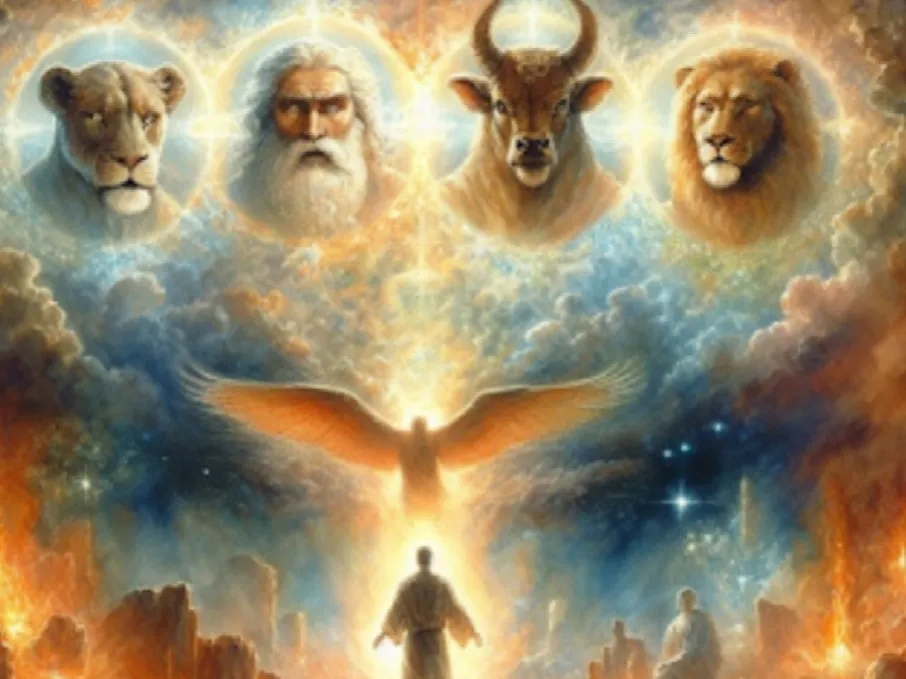Ezekiel’s Vision Is Not Your Sunday School Angels

SHARE
When we think of angels, we often picture radiant beings in flowing white robes, maybe strumming harps or hovering peacefully with delicate wings. But in Ezekiel 1, the prophet’s vision of heavenly beings shatters that comforting image—a fierce, awe-inspiring glimpse into the heavenly realm, and it demands our attention.
Ezekiel’s prophetic journey begins “in the thirtieth year, in the fourth month on the fifth day,” when he sees “visions of God” (Ezekiel 1:1). What unfolds is one of the most striking and mysterious scenes in all of Scripture.
Four living creatures appear, and they are unlike anything the earthly mind can easily grasp. “Each had four faces, and each of them had four wings” (Ezekiel 1:6). The faces—those of a human, a lion, an ox, and an eagle—are not just symbolic. They represent dominion, strength, servanthood, and majesty, echoing God’s sovereign authority over all creation.
This isn’t soft imagery. These beings move “straight forward” without turning (v. 9), and their wings make a thunderous sound—“like the roar of many waters, like the sound of the Almighty” (v. 24). Their presence is not comforting in a sentimental way; it’s terrifying, majestic, and wholly divine.
Above them, Ezekiel sees “a throne, in appearance like sapphire” (v. 26), and on it, “the appearance of a man.” He describes “brightness like the appearance of the rainbow that is in the cloud on the day of rain” (v. 28).
This throne vision, framed in glory and fire, is not random—it’s a theophany, a visible manifestation of God Himself. And what does Ezekiel do in response? “I fell on my face” (v. 28). The weight of the divine flattens him. Holiness always humbles.
This kind of angelic imagery doesn’t show up on Christmas cards. But it should shape our understanding of who God is. Angels aren’t cute—they’re servants of the Almighty, burning with purpose and reflecting His glory. Ezekiel’s vision is a window into the throne room of God, where every creature exists to exalt His holiness and carry out His will.
The takeaway isn’t just about cherubim with wheels or four-faced beings. It’s about the majesty of the God we serve. “The heavens declare the glory of God” (Psalm 19:1), and Ezekiel’s vision reminds us that glory isn’t always soft and gentle—it can be overwhelming, brilliant, and wild.
So next time you think of angels, think bigger. Think heavenly armies. Think thunder and fire. Think Ezekiel. Because the God of the Bible isn’t small, and neither are His messengers.
*Cover Photo/Thumbnail Photo from bibleart.com
RELATED ARTICLES

Explore the Outlying Islands of Hong Kong at The Peninsula

‘Gift of Fortune’ Chinese New Year Stay Package

Pastors Speak as Darkness Comes to Light

James Van Der Beek’s Last Words: Worthy of God’s Love








